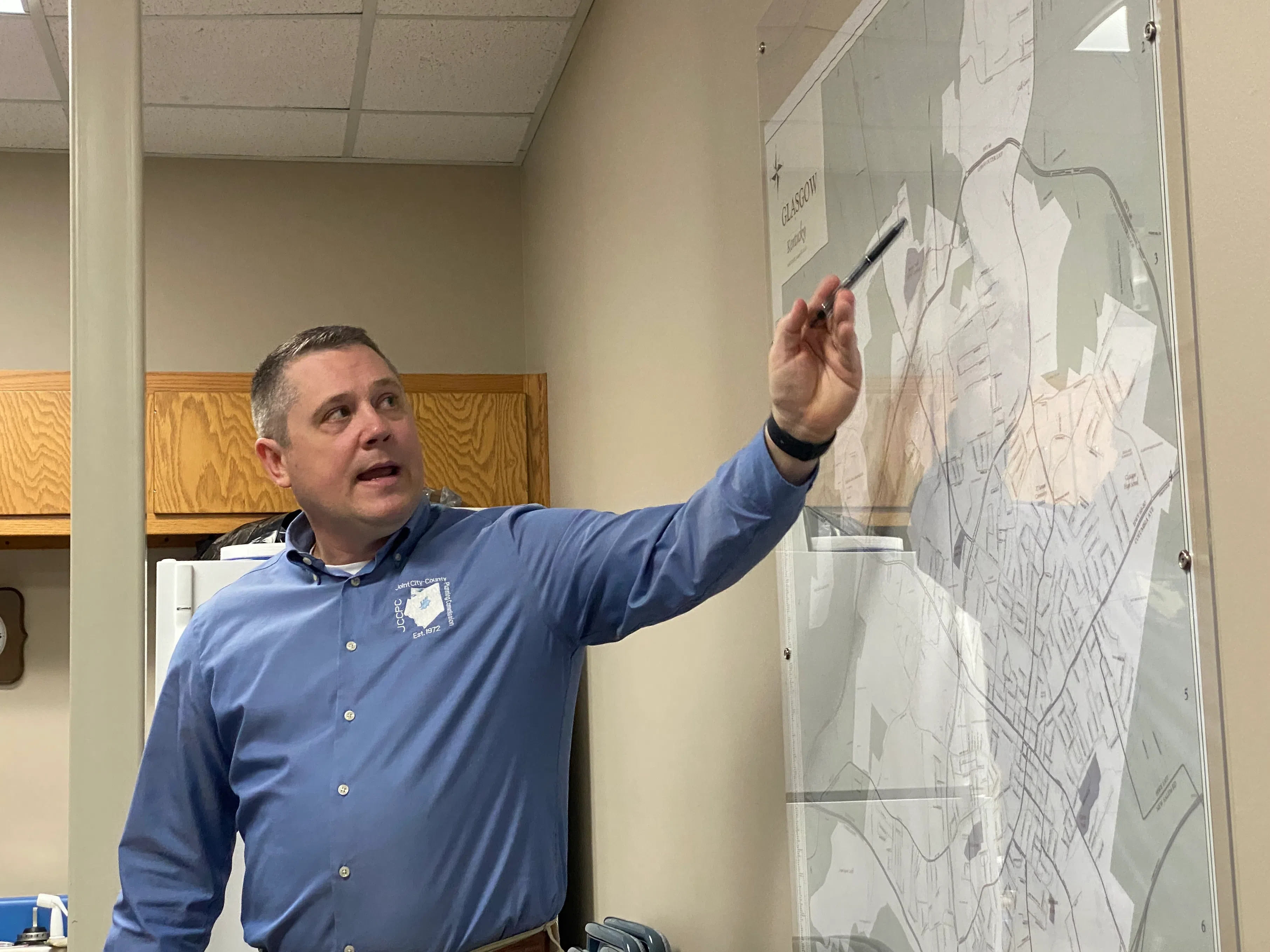By MICHAEL CRIMMINS
Glasgow News 1
Barren County Judge-Executive Jamie Bewley Byrd announced that a public meeting has been scheduled for April 2 from 4:30 to 6 p.m. with getting residents’ inputs on countywide zoning being the “main focus.”
“Everybody will have the opportunity to speak and sign up,” Byrd said during a recent WCLU interview. “We just want to listen to the public. You see a lot of things on social media and we want to allow them to speak to us. Of course, the main focus is zoning and my reasoning for [the public meeting] is to [have the attendees] say why or why not because I really am in the middle ground in all of this.”
At the April 1 Barren County Fiscal Court meeting, Byrd said people who sign up can speak on any topic. She said those who sign up will get 2 minutes to speak.
Currently only Glasgow, Cave City and Park City have planning and zoning with each incorporated municipality having its own zoning ordinance. Planning Director Kevin Myatt said countywide zoning would be “one of the biggest pieces of county legislation” that would affect nearly all 45,000 Barren County residents.
“This is one of the largest pieces of local legislation that can be passed for a county,” Myatt said. “That’s how big this is because it [would] affect every single person in the county.”
“The only other thing that I can think of that would be bigger is an occupational tax,” he added.
One group that would be affected, but minimally at first, would be farmers. As Myatt explains, all 50 states have The Right-to-Farm Act, which “protect[s] qualifying farmers and ranchers from nuisance lawsuits filed by individuals…who later use nuisance actions to attempt to stop those ongoing [agriculture] operations.”
“The farming community, the agriculture community, is the most protected entity in the state from zoning,” Myatt said. “I cannot by law, nor would we ever, dictate what is grown on there, how many acres [are] tillable, how many cows you have per acre, how many barns you have, what type of equipment you’re going to use…any agricultural-purposed use [the planning commission] cannot regulate.”
“Kentucky’s…law prohibits local governments from using zoning or other ordinances that restrict the use of “normal” and “accepted” practices by silvicultural and agricultural operations,” the UK College of Arts and Sciences states. “The Kentucky Court of Appeals has interpreted the law to apply only in areas zoned for agriculture but not residentially zoned areas.”
Essentially, Myatt said, aside from the initial designation as agriculture, the Joint City-County Planning Commission could not regulate the property’s use, which is unlike other zoning classifications. However, if a previously agriculture-designated landowner wants to split his land into smaller plats, planning and zoning could regulate the smaller plats, according to Myatt.
“Let’s say this farmer decides to divide his land and put 35-40 houses on [a small road], right now the planning commission would say ‘I can’t dictate the use’ but if he has to rezone it [first] the planning commission could say ‘we’ll rezone it to a residential use but you have to bring [the entire county] road up to standards.”
Myatt said if the county decided to implement zoning it would take “multiple, multiple” public meetings to inform as many people as possible with around six to eight months to finally implement.
The nearest county to Barren that has countywide zoning is Warren, but Myatt emphasized that does not mean Barren County’s zoning ordinance would be the same.
“We’ll write it as lax or as stringent as the community wants us to,” Myatt said. “If Barren County wants zoning [then] its citizens will dictate its stringency.”
Hypothetically, the countywide zoning would go to the Joint City-County Planning Commission and be treated like a text amendment with a public hearing. After the planning commission meeting, the zoning language would go to the Barren County Fiscal Court for the magistrates’ approval. Myatt said all the due diligence of crafting the language and taking testimony, which would be given during the public hearing, would be performed by the commission and all the magistrates could approve it or not.
Much like anything else, Myatt said there would be advantages and disadvantages to having countywide zoning.
“There would be rules and regulations, so it’s a give and take,” Myatt said.






